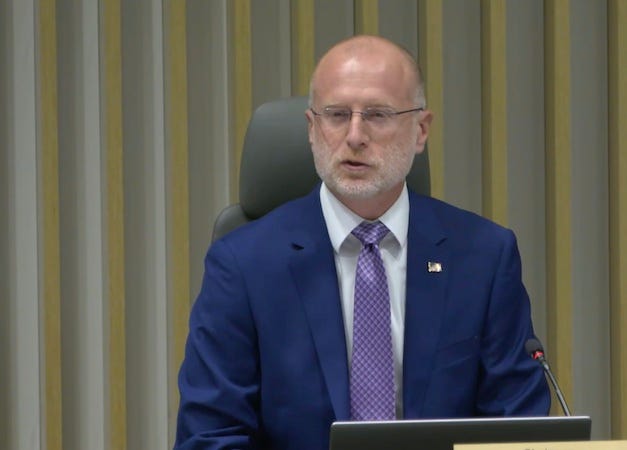The FCC will vote on reforms to accelerate innovation and growth in America’s space economy, especially for startups and new businesses, at its meeting on August 7th. If adopted, the new reforms would eliminate needless paperwork and clear regulatory barriers to Ground-Station-as-a-Service (GSaaS), a business model where a single facility on Earth connects to multiple satellite systems in space.
"Clearing out regulatory barriers will empower new competitors and innovations in space."
Brendan Carr, FCC
GSaaS gives satellite operators, especially startups and emerging growth companies, the ability to send and receive signals without having to build their own infrastructure. The FCC’s reforms will give this exciting business model a solid regulatory footing it previously lacked.
“Our Build America Agenda includes boosting America’s space economy. With this proposed decision, the FCC can streamline processes and accelerate the development of innovative new services, FCC Chairman Brendan Carr said in a statement released to the media. "Clearing out regulatory barriers will empower new competitors and innovations in space, particularly the kind of neutral-host infrastructure that has proven so successful in the wireless industry.”
The order to be voted on August 7th would streamline and expedite processes for space stations and earth stations, including removing many requirements to file license modification applications. In addition, the new reforms would allow the nascent GSaaS industry to invest and grow with newfound regulatory clarity—without unnecessary or burdensome regulation.
The reforms will also make the FCC more efficient, establishing a new process for ground station operators to receive a baseline license without first identifying a specific satellite point of communication. For each new point of communication, only a simple FCC notification will be needed. This one change would eliminate approximately 49% of earth station modification applications, the commission says.
And, the proposed reforms would expand the list of license modifications that do not require prior authorization, adopt a 30-day shot clock for earth station renewal applications, and eliminate repetitive requests for special temporary authority for geostationary orbit satellites. Rules like the requirement for applicants to print and retain a paper copy of the ICFS application for their files ... approximately 21,000 paper pages a year ... would also be eliminated.





